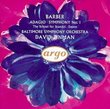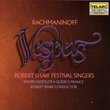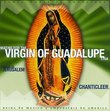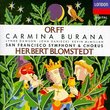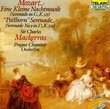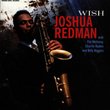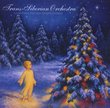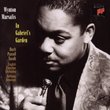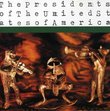| All Artists: Richard [1] Strauss, Herbert von Karajan, Berlin Philharmonic Orchestra Title: Richard Strauss: Also Sprach Zarathustra; Don Juan Members Wishing: 0 Total Copies: 1 Label: Dg Imports Release Date: 2/15/1993 Album Type: Import Genre: Classical Styles: Forms & Genres, Theatrical, Incidental & Program Music, Historical Periods, Modern, 20th, & 21st Century Number of Discs: 1 SwapaCD Credits: 1 UPC: 028943901628 |
Search - Richard [1] Strauss, Herbert von Karajan, Berlin Philharmonic Orchestra :: Richard Strauss: Also Sprach Zarathustra; Don Juan
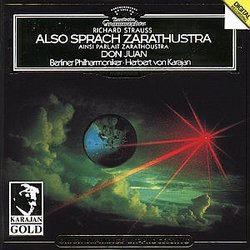 | Richard [1] Strauss, Herbert von Karajan, Berlin Philharmonic Orchestra Richard Strauss: Also Sprach Zarathustra; Don Juan Genre: Classical
![header=[] body=[This CD is available to be requested as disc only.]](/images/attributes/disc.png?v=430e6b0a) ![header=[] body=[This CD is unavailable to be requested with the disc and back insert at this time.]](/images/attributes/greyed_disc_back.png?v=430e6b0a) ![header=[] body=[This CD is available to be requested with the disc and front insert.]](/images/attributes/disc_front.png?v=430e6b0a) ![header=[] body=[This CD is unavailable to be requested with the disc, front and back inserts at this time.]](/images/attributes/greyed_disc_front_back.png?v=430e6b0a) |
Larger Image |
CD DetailsSimilarly Requested CDs
|
CD ReviewsA Magnificent Zarathustra for the Ages! dv_forever | Michigan, USA | 12/23/2005 (5 out of 5 stars) "This last recording of Zarathustra by Karajan and the Berlin Philharmonic is truly stunning. As pure sound it's heavenly, the recording is rich and the interpretation has a depth and otherworldliness that other versions lack. Some might prefer the leaner, faster Reiner version from 1954 but it's kind of cold and efficient and doesn't embrace the human as much as Karajan does in this performance. Karajan certainly embraces the human and the superhuman in this luscious, grandiose tapestry of sound. If you want to buy several versions, this Karajan version is probably second only to Karajan's 1974 version, which is very famous in it's own right and third place would be Reiner 1954, followed by Reiner 1962, Karajan 1959, Solti in the 1990's with Berlin, Haitink in the 1970's, or whatever other interpretation you prefer. Just make sure you have this Karajan Gold disc in your possession if you care about Also Sprach Zarathustra. I think Karajan's 1974 recording is the finest, but Karajan is basically competing with himself in this music. Only Reiner is in the same elite class, yet his interpretation is markedly different. The Don Juan is also terrific here and together makes this a must purchase for the fan of Strauss, Karajan or classical music in general. I agree with other people that Karajan's recordings in the 1980's were not always the finest when compared to his previous versions of the same music, however this performance can be placed among his best from the 1980's. Make sure you are purchasing this recording in it's remastered form, the label is Karajan Gold, catalog number 439 016-2." Good Interpretation, Technical Limitations G.D. | 05/20/1999 (3 out of 5 stars) "HvK is one the most renowned conductors of Richard Strauss, and also this CD is certainly no exception. HvK is very demanding, he lives the story like it was his own: The music of the BPO is grandiose, where the score of the poetic drama demands it, and it is sensitive and full of feelings, where most likely Strauss himself would have wanted it. This CD however, has to stand up against the highest of standards actually set by no other than the Maestro himself, back 1973 on DG as well. And here, we have the clash of titan against himself, in two different ages, and of course, with two entirely different recording techniques. With this CD, recorded in the early days of the digital age, the dynamic is much more impressive, there are no contortions whatsoever, but typically for digital recordings of the early '80s, the cords are sterile and the sound is lacking much of often desired characteristic warmth, especially with a to-the-point-precise, strictly objective perfectionist conductor like HvK. The old analog recording offers far more loveliness, like an old blue jeans, that you loved a lot and therefore wore so long. However, even a not so perfect digital DG-Karajan recording is still a good one, and like any new pants, it may become comfortable with age, and so it shall be left to each music friend for himself, which of one the ages, which one of the CDs, or shall we say, blue jeans, to prefer. (RURW)." Ignore the pan--this is great Strauss Santa Fe Listener | Santa Fe, NM USA | 09/05/2005 (5 out of 5 stars) "Comparing them side by side, I also prefer the earlier analog versions of these pieces under Karajan, but he didn't exactly slack off in the digital era. This is superlative, blockbuster Strauss of the kind Karajan did without rival. Thanks to the fame that the opening section gained from Kubrick's 2001: A Space Odyseey, the catalog proliferates with versions of Zarathustra, and there's room for more than one viewpoint. As a sonic blockbuster I appreciate Blomstedt's from San Francisco on Decca, for crisp orchestral virtuosity the classic 1954 Reiner from Chicago on RCA, and for musical warmth the lesser known Tennstedt on EMI.
Still, if I had to make a desert island pick, it would be another Karajan version, from 1959, with the Vienna Phil. on Decca. This is the one used for the 2001 soundtrack, and if you can find it in rematered form, the sound is very satisfying despite some analog tape hiss. Karajan's interpretation isn't much changed, but the delicious vienna Phil. makes alll the difference in Strauss." |

 Track Listings (10) - Disc #1
Track Listings (10) - Disc #1